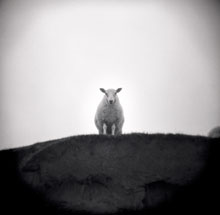Environmental policies threaten uplands’ future

Environmental policies that could leave some of Wales’ uplands devoid of livestock would have serious consequences for the future of those hills.
According to Meuric Rees, who opened NSA Welsh Sheep 2011on 18 May, a sensible balance must be struck between conservation and farming. His concern centered on prescriptions within Wales’ new environmental land management scheme, Glastir, which limit grazing on upland ground.
“I am worried by proposals to take livestock off big areas of our hills,” admitted Sir Meuric, who previously chaired the Welsh committee of the UK Countryside Commission, now the Countryside Council for Wales. “These hills will not be the same again; grazing is a natural part of their system.
“We need hill breeds of sheep to breed lowland varieties – it would affect the whole line if we had fewer sheep on the hills. In my opinion it is as bad for a hill to be under-stocked as it is to be overstocked.”
Sir Meuric believes zero grazing policies will be counter-productive. “For the sake of one or two varieties of plants, is it worth taking stock off hundreds of acres – can it be justified? I don’t think so. It doesn’t come naturally to farmers who want to produce as much as they can.”
Thousands of farmers attended the NSA Welsh Sheep, hosted this year by the Jones family at Maesllwyni and Maesterran Farms, Machynlleth. Increasing regulation of their industry was at the forefront of the minds of many of those farmers.
Sir Meuric believes it is time to review the future of many of the regulatory organisations which were put in place after disease outbreaks.
“These organisations were set up to deal with each crisis and they did so effectively, but should they really still be with us?” he questioned. “I’m all for regulation of livestock and movement licensing and I acknowledge that in return for our Single Farm Payment we have to accept these rules, but as an industry we have become over-regulated and this must be addressed.”
